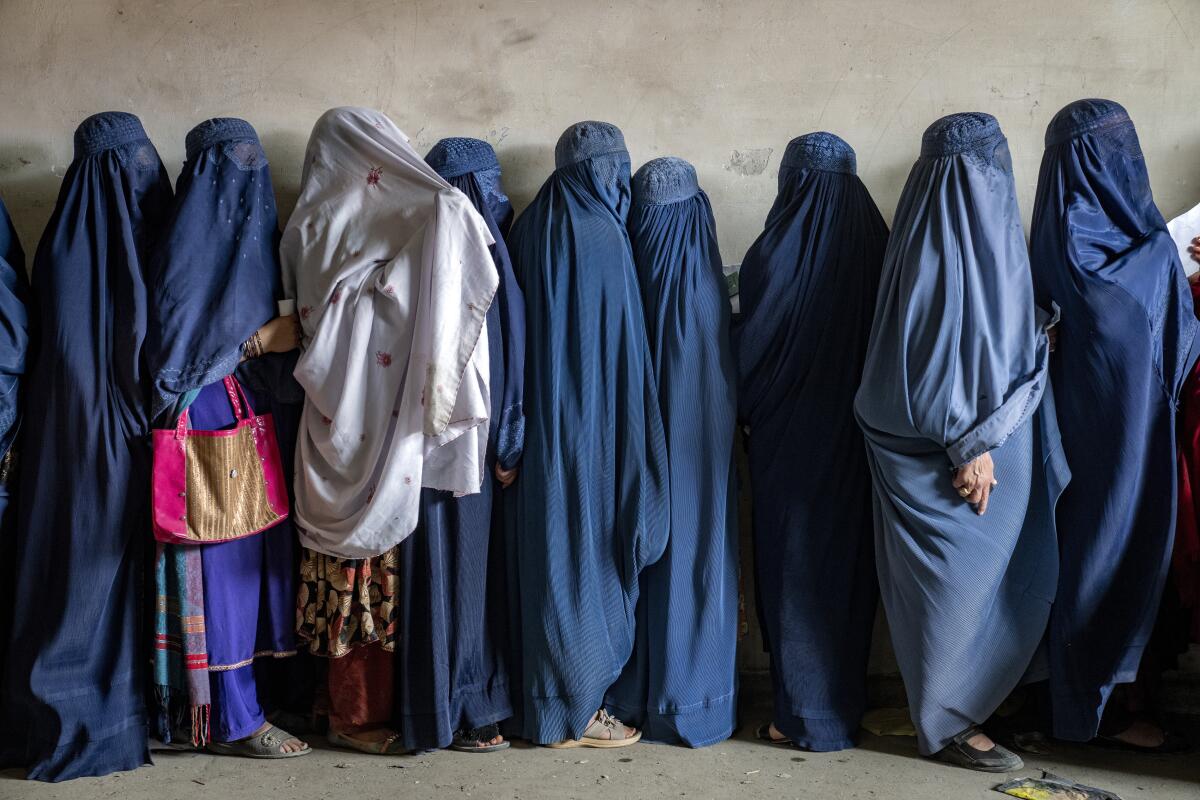Taliban decrees on clothing and male guardians leave Afghan women scared to go out alone, U.N. says

- Share via
ISLAMABAD, Pakistan — Afghan women feel scared or unsafe leaving their homes alone because of Taliban decrees and enforcement campaigns on clothing and male guardians, according to a report from the United Nations mission in Afghanistan.
The report, issued Friday, comes days before a U.N.-convened meeting in the Qatari capital is set to start, with member states and special envoys to Afghanistan due to discuss engagement with the Taliban and the country’s crises, including the human rights situation.
The Taliban — which took over Afghanistan in 2021 during the final weeks of U.S. and NATO withdrawal from the country — have barred women from most areas of public life and stopped girls from going to school beyond the sixth grade as part of harsh measures they imposed despite initial promises of a more moderate rule.
They are also restricting women’s access to work, travel and healthcare if they are unmarried or don’t have a male guardian, and arresting those who don’t comply with the Taliban’s interpretation of hijab, or Islamic head scarf.
The U.N. mission’s report said the decrees are being enforced through arrest, harassment and intimidation. Women said they increasingly fear going to public spaces owing to the threat of arrest and the “long-lasting stigma and shame” associated with being taken into police custody.
A spokesman from the Vice and Virtue Ministry, the Taliban’s morality police that enforces such decrees, said it was “nonsense and untrue” that women are scared to go to the shops.
“There is no problem for those sisters [women] who have observed hijab,” said Abdul Ghafar Farooq. “As women are naturally weaker than men, then Shariah [Islamic law] has called mahrams essential when traveling with them for the sake of their dignity and respect.”
More to Read
Sign up for Essential California
The most important California stories and recommendations in your inbox every morning.
You may occasionally receive promotional content from the Los Angeles Times.










